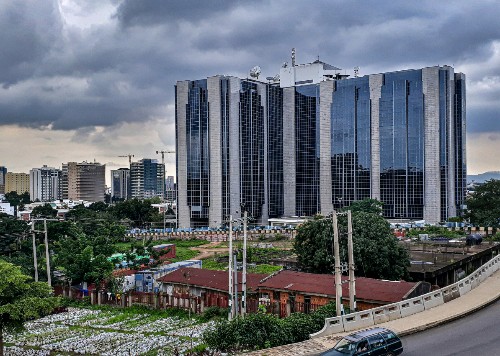The presidential candidate of the Peoples Democratic Party for the 2019 elections, Atiku Abubakar, has told President Muhammadu Buhari, who is flying the flag of the All Progressives Congress for the election, that he is the one with history of bringing in looted funds into the country.
Abubakar said this on Sunday in reaction to allegations by Buhari that the former vice president has a history of corruption.
In a statement by his spokesman, Mazi Paul Ibe, Abubakar said he was the one as aa Customs Officer at the Murtala Mohammed International Airport, who stopped Buhari’s Aide-De-Camp from bringing in 53 suitcases of money when the President served as military Head of State.
The statement reads in full:
Our attention has been drawn to a statement by President Muhammadu Buhari accusing Atiku Abubakar of planning to smuggle in looted funds into the country just before the February 2019 elections.
This new accusation, like their previous allegations, is another infantile outburst that tells more about the accuser than the accused. Atiku Abubakar has no looted funds abroad or in Nigeria.
For the avoidance of doubt, history shows that rather than smuggle in looted cash, Waziri Atiku Abubakar has a record of preventing looted funds from being smuggled into Nigeria.
In 1984, it was Atiku Abubakar, as head of the Murtala Mohammed International Airport Command of the Nigerian Customs and Excise Department, that stopped the ADC of the then Military Head of State, Muhammadu Buhari, from smuggling in 53 suitcases of looted money into the country.
Young Nigerians and millennials who may not be aware of this incident, will do well to Google it. Only the guilty are afraid. It is President Muhammadu Buhari who has a history of smuggling in looted funds and not Waziri Atiku Abubakar.
In fact, Nasir El-Rufai, a favourite of the President and a chieftain of the All Progressives Congress, said as follows on October 4, 2010:
“In 1984, Buhari allowed 53 suitcases belonging to his ADC’s father to enter Nigeria unchecked at a time the country was exchanging old currency for new.”
Atiku Abubakar’s plane was searched, his accounts have been perused and his businesses have been thoroughly investigated with a fine tooth and nothing remotely corrupt or illegal has been found.
In desperation, the Buhari administration released this statement to cover their shame on a day that the US based International Strategic Studies Association reported that it is the unprecedented corruption around President Buhari that has led to the recent setbacks in the war on terrorism in the Northeast and the heavy loss of lives amongst the military rank and file. May God save Nigeria from a government that values money over lives.
We therefore urge Nigerians to note that it is Muhammadu Buhari who has a history and a record of smuggling in looted funds and it is Waziri Atiku Abubakar who has a history of preventing such from happening.
And while they are at it, we urge them to tell Nigerians those behind Etisalat and Keystone Bank and how they suddenly possessed such wealth overnight.
Finally, Nigerians should note that the Buhari administration cannot defend their record on jobs and poverty – the things of most concern to voters – thus, their only resort is slander.
Signed:
Paul Ibe, Media Adviser to HE Atiku Abubakar.

 BIG STORY3 days ago
BIG STORY3 days ago
 BIG STORY1 day ago
BIG STORY1 day ago
 BIG STORY1 day ago
BIG STORY1 day ago
 BIG STORY22 hours ago
BIG STORY22 hours ago
 BIG STORY1 day ago
BIG STORY1 day ago
 BIG STORY4 days ago
BIG STORY4 days ago
 BIG STORY4 days ago
BIG STORY4 days ago
 BIG STORY1 day ago
BIG STORY1 day ago






































